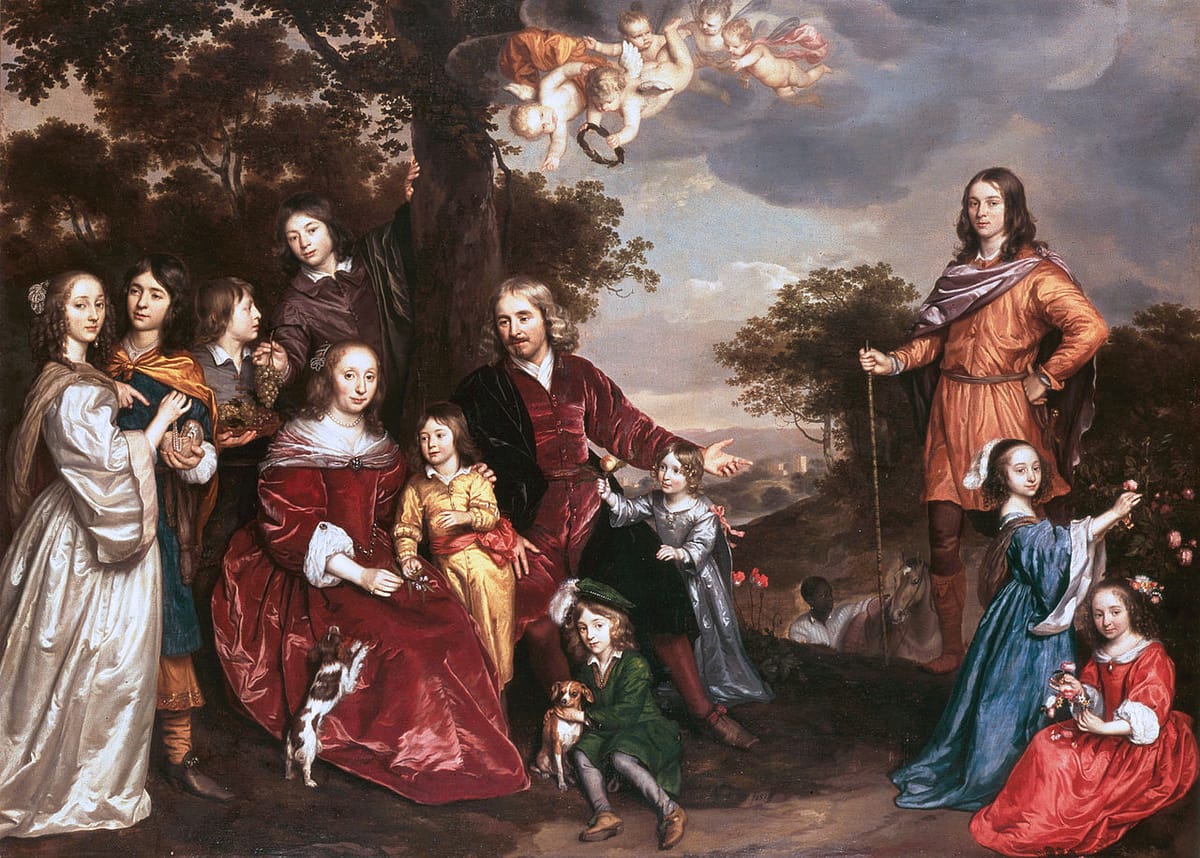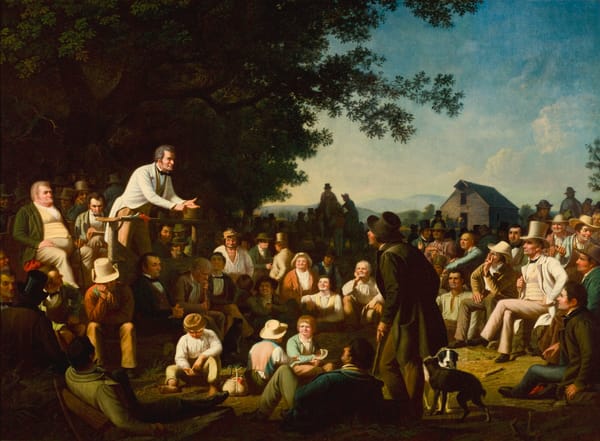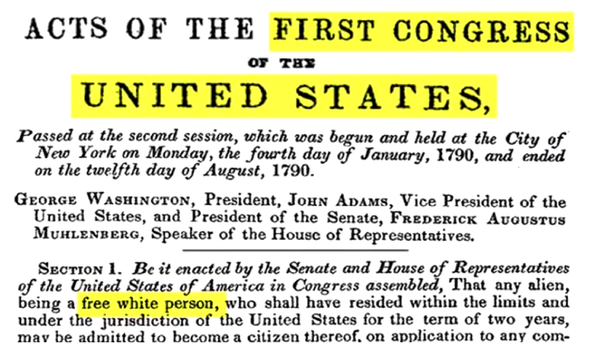Prudence in Government
Today, the very idea of superiors and inferiors is taken as a scandal. This is a fifth commandment violation.

Look at the chart below and ask yourself, “Would it be prudent for an Ethiopian to lead a congregation of Korean Christians?”

You can qualify it all you like with hypothetical outliers, but if your answer is not a resounding NO, then you’ve left the path of wisdom, and you’re missing the point of prudence, both from natural and revealed theology.
Consider the analogy of men and women. It should be uncontested among faithful Christians that God has particularly gifted men for roles of leadership. Johann Zwinger, the 17th century professor at Basel, taught,
The rule of women is a punishment from God, as in Isaiah 3:12. Hence Antiphanes, in Stobaeus’ Sermon 72, says, “That family which is governed by a woman has never existed without perishing.”
Zwinger added,
Nature has equipped men, not women, with the gifts necessary for ruling. For it has given them prudence, greatness of mind, strength of body, endurance of labor, constancy in adversity, placability, and silence. But all these things are found either not at all, or more sparingly, in women.
As John Knox wrote in The First Blast of the Trumpet Against the Monstrous Regiment of Women:
To promote a woman to bear rule, superiority, dominion or empire, above any realm, nation, or city, is repugnant to nature; contumely to God, a thing most contrarious to his revealed will and approved ordinance, and finally it is the subversion of good order, of all equity and justice.
The modern mind, marinated in Equality, revolts against such common sense because it is trained to believe that all who are governed are equally qualified to determine by whom they are governed. R.L. Dabney rejected this sophistry entirely:
One must teach…that just government is not founded on the consent of the individuals governed, but on the ordinance of God, and hence a share in the ruling franchise is not a natural right at all, but a privilege to be bestowed according to a wise discretion on a limited class having qualification to use it for the good of the whole; that the integers out of which the State is constituted are not individuals, but families represented in their parental heads; that every human being is born under authority (parental and civic) instead of being born “free” in the licentious sense that liberty is each one’s privilege of doing what he chooses; that subordination, and not license, is the natural state of all men; and that without such equitable distribution of different duties and rights among the classes naturally differing in condition, and subordination of some to others, and of all to the law, society is as impossible as is the existence of a house without distinction between the foundation stone and the capstones. (Women’s Rights Women)
Just as it is imprudent for women to lead men, it is imprudent for the weak to lead the strong. No weakling ever led an army into battle. Nor has an inferior race ever led a superior race in any respect. It’s imprudent for a crude race to lead an advanced race in church government or any other form of government, because order is necessary for proper and effective government, and especially for proper and effective worship.
This relates to what C.S. Lewis recognized: the word ruler has been replaced by the word leader. This has reflected the cultural shift away from standards and towards superficiality, away from ordered liberty and towards control, away from authority and towards unbounded power.
The Book of Church Order of the Orthodox Presbyterian Church says:
It is highly reproachful to religion and dangerous to the church to trust the preaching of the gospel to weak and ignorant men.
This echoes Dabney, who in his “Ecclesiastical Relation of Negroes,” wrote,
While the blessings of redemption are free to all, of every race or caste, the privileges of church office may be properly withheld from some, at the dictate of a sound discretion. This is Scriptural truth… [T]he wisest masters in Israel, a John Newton, an Alexander, a Whitefield, have told us, that although grace may save a man’s soul, it does not destroy his natural idiosyncrasy, this side of heaven. If you trust any portion of power over your Church to black hands, you will rue it.
Time has only confirmed this. Not a single example may be found of a historically White church being taken over by Blacks and led to greater fidelity, virtue, or any betterment whatsoever; only moral degradation.
As Plato said, “[W]hen equality is given to unequal things, the resultant will be unequal, unless due measure is applied…” (Laws 6.757)
Aristotle agreed, saying that justice is equal for equals, and inequality is just for unequals. (Politics 3.1280a)
And the wisdom given to Moses confirms natural law. In Deuteronomy 22:10–11, we read that a farmer is not to plow with an ox and donkey together, because the two are unequal and will be unable to cooperate. The same rule is given there against wearing cloth of wool and linen intermixed, because the cloth will be unreliable due to one thread being stronger than another. These rules were given for our instruction (Romans 15:4).
As Dabney wrote,
An equal government must confer very different degrees of power, and impose very different degrees of restraint, upon different classes of members. To attempt an identical and mechanical equality; to confer on those who are incompetent to use them, the same privileges granted to others who can and will use them rightfully, would be essential inequality; for it would clothe the incompetent and undeserving with power to injure the deserving and capable, without real benefit to themselves. Hence, the civic liberties of all classes in the same society ought not to be the same. Thus, of the adult members, half are females, inexorably separated by sex, strength, social relations, and natural duties. Hence different civic rights are properly given to the male, in some respects; not because it is right to empower him to consume upon the promotion of his natural well-being that of his sister, but because, on the whole, the well-being of both sexes is thus most promoted…
There is in the society another class of members, the children, who are not only different from, but inferior to, the adults, in knowledge, strength, experience, and self-control. Hence, it is equitable to withhold from them still other privileges of the full citizenship. Again: the amount of privileges properly conceded to the body of citizens of the first class, should vary in different commonwealths with their average character. If intelligence and virtue are, in the average, more developed, the restraints of government should be fewer; if less cultivated, more numerous. Different frames of government may be best for different communities.
—A Defence of Virginia, 7.3
Today, the very idea of superiors and inferiors is taken as a scandal. This is a fifth commandment violation. The Westminster Larger Catechism tells us that by “father” and “mother” are meant “not only natural parents, but all superiors in age and gifts; and especially such as, by God’s ordinance, are over us in place of authority, whether in family, church, or commonwealth.” To reject this law is to become “murderers of fathers and murderers of mothers” (1 Tim. 1:9). We are not to treat all families equally, because we each have our own parents, and we are not to treat all peoples and races equally, because one of them is ours.
Unless we see our own as unequal to others, we fail in our duties. “They never will love where they ought to love,” wrote Edmund Burke, “who do not hate where they ought to hate” (Letter Four on Regicide Peace, to the Earl Fitzwilliam).
We are regularly confronted with the fact that equality is the weapon of the envious to steal, kill, and destroy.
Envy wears the mask of love,
And laughing sober facts to scorn,
Cries to weaker as to stronger:
“Ye are equals, equal born.”
—Tennyson, Locksley Hall Sixty Years After
Joseph Sobran described this threat in memorable terms:
The concept of envy—the hatred of the superior—has dropped out of our moral vocabulary… The idea that white Christian civilization is hated more for its virtues than its sins doesn’t occur to us, because it’s not a nice idea…
Western man towers over the rest of the world in ways so large as to be almost inexpressible. It’s Western exploration, science, and conquest that have revealed the world to itself. Other races feel like subjects of Western power long after colonialism, imperialism, and slavery have disappeared. The charge of racism puzzles whites who feel not hostility, but only baffled good will, because they don’t grasp what it really means: humiliation. The white man presents an image of superiority even when he isn’t conscious of it. And, superiority excites envy. Destroying white civilization is the inmost desire of the league of designated victims we call minorities.
—“Liberty, Equality, Diversity,” Sobran’s: April 1997
The attempt to level all differences is contrary to God’s purposes in the world, cripples progress, lobotomizes thoughtful discourse, and as we have seen, shows hatred to our own by willfully placing them at a disadvantage and elevating the stranger. This robs from our posterity the inheritance that they should receive from their fathers, and it feeds the fires of Marxism, which consumes the future, like locusts attacking crops.
Gonzalo Fernandez de la Mora has explained the leveling imperative of all such Utopianism:
Organized envy usually crystallizes into egalitarian norms whose origin is found not in custom but in government. This is a kind of uniformity from above: egalitarianism through coercion, either ideological, economic, or social. These three facets are complementary, and Marxist-Leninist doctrine proclaims a utopia based on this triple equalization: that all think alike (ideological), that all belong to this one class only (economic), and that all share a similar patrimony (ethnic).
—Egalitarian Envy: The Political Foundations of Social Justice (p. 97)
As Christians, we take the opposite view of the natural order. In all our forms of government (familial, civil, ecclesiastical), we must carefully avoid the extremes of uniformity and polyglot chaos. Christian community strikes a healthy balance between the general and particular, recognizing that all men are equal under the law, meaning in their access to justice, and that no two men have ever been born free and equal.
Profiting from the content?
Donate to the Cause.
Helps us reach our monthly goal.






